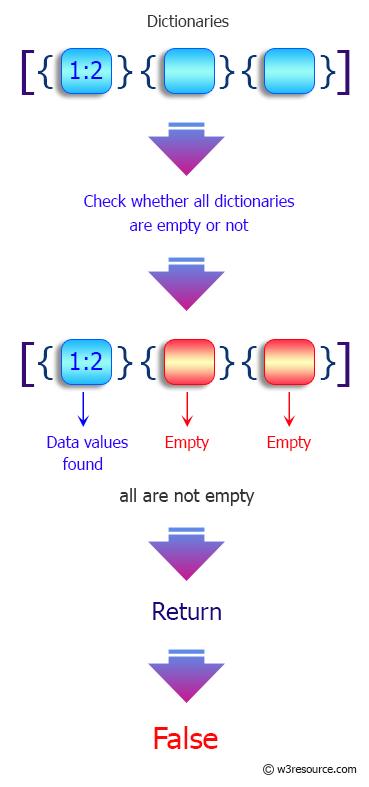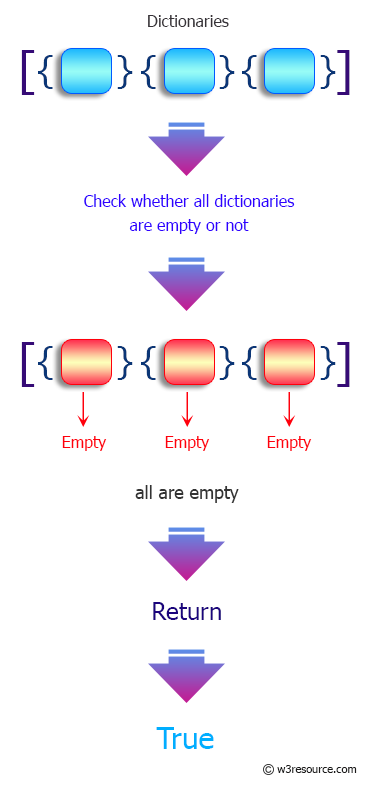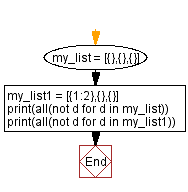Python: Check whether all dictionaries in a list are empty or not
Check If All Dictionaries Are Empty
Write a Python program to check whether all dictionaries in a list are empty or not.
Visual Presentation:


Sample Solution:
Python Code:
# Define a list 'my_list' containing three empty dictionaries
my_list = [{}, {}, {}]
# Define another list 'my_list1' containing dictionaries, one of which has a key-value pair
my_list1 = [{1: 2}, {}, {}]
# Check if all dictionaries in 'my_list' are empty (i.e., contain no key-value pairs)
# The 'not d for d in my_list' generator expression returns 'True' for each empty dictionary, and 'all' checks if they are all 'True'
print(all(not d for d in my_list))
# Check if all dictionaries in 'my_list1' are empty (i.e., contain no key-value pairs)
# The 'not d for d in my_list1' generator expression returns 'True' for the dictionaries that are empty, and 'all' checks if they are all 'True'
print(all(not d for d in my_list1))
Sample Output:
True False
Flowchart:

For more Practice: Solve these Related Problems:
- Write a Python program to check if at least one dictionary in a list is non-empty.
- Write a Python program to filter out empty dictionaries from a list.
- Write a Python program to replace all empty dictionaries in a list with a default dictionary.
- Write a Python program to count the number of empty dictionaries in a list.
Go to:
Previous: Write a Python program to find the items starts with specific character from a given list.
Next: Write a Python program to flatten a given nested list structure.
Python Code Editor:
What is the difficulty level of this exercise?
Test your Programming skills with w3resource's quiz.
